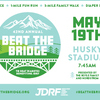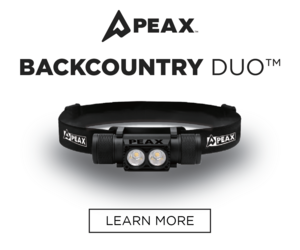Trek Bicycle aggressively opposes small business trademark
Christina Isaacs is not a competitive person. When she founded Ranger Trek out of her home in Woodinville, Wash. in 2016, she had a fairly niche vision: she wanted to create products to help kids in the National Park Service’s Junior Ranger program scrapbook their adventures in U.S. National Parks.
Isaacs wanted to start her business “without stepping on anybody’s toes,” she said.
“I chose the word ‘trek’ because it was short and it just seemed like it made sense,” Isaacs said. “Because the definition of ‘trek’ is to go on a journey by foot. And that's what you do in most parks, you're on foot and you're exploring.”
But since starting her business, she has faced litigation by the Trek Bicycle Corporation (TREK), who allege that she violated their trademark by using the word “trek” in the name.
The issue began in January 2017, when Isaacs first received notice that TREK opposed her trademark. The Trademark Trial and Appeal Board (TTAB) heard the case over four years later, on May 5, 2021.
In August 2021, TTAB ruled in Isaacs’ favor, stating that Isaacs did not violate TREK’s trademark because she does not sell any products related to biking.
In the ruling, the board stated that TREK’s trademark is “somewhat conceptually weak” because of the word’s generic, undistinctive nature.
“We find that Opposer’s TREK mark is famous for bicycles and bicycle accessories,” the ruling reads. “The evidence does not support a finding that TREK is famous for the types of goods identified in the subject applications.”
That September, TREK filed a Request for Reconsideration with TTAB. That request was denied.
“The applicable law and the evidentiary record amply support the Board’s Decision concerning the absence of fame for clothing and bags and the existence of other TREK marks for similar or related goods on the register,” TTAB stated. “We find no error in the Decision.”
But TREK kept pushing. In February 2022, the corporation filed an appeal with the U.S. Federal Circuit Court of Appeals. Isaacs said her attorney estimates that the court will begin examining the case in February and issue a decision within the next few months.
In their arguments, Isaacs and her attorney named dozens of other goods and services that use the word “trek” in their name, including companies that sell footwear, hiking gear, outdoor excursion programs, youth summer recreation programs, travel bags, globes, maps and brochures, as well as Star Trek, which premiered 10 years before the Trek Bicycle Corporation was founded.
Isaacs accused TREK of “trademark bullying”, noting that TREK has gone after many companies that used the word in their name. According to Bicycle Retailer, TREK has opposed more than 400 other trademarks, most of which belonged to small businesses.
An essay titled “Shaming Trademark Bullies” by Leah Chan Grinvald, dean of the William S. Boyd School of Law at the University of Nevada, Las Vegas, defines trademark bullying as “the enforcement of an unreasonable interpretation by a large corporation of its trademark rights against a small business or individual through the use of intimidation tactics.”
“This bullying is a serious concern, as it has implications far beyond trademark law and impacts the U.S. economy and the freedom of cultural expression,” the essay reads.
Trademarkia, an online trademark and intellectual property database, ranks TREK fourth in its list of “All Time Biggest Bullies” behind the Monster Energy Company, Kellogg North America and Apple Inc.
An April 2011 Report to Congress by the Department of Commerce’s United States Patent and Trademark Office (USPTO) studied the effects of aggressive trademark enforcement and posited that the practice unduly harms small businesses.
“It seems that the costs associated with securing trademark counsel to respond to trademark enforcement efforts has the greatest negative impact on small businesses,” the report reads. “In such cases, small businesses may instead [choose] to give in to the trademark owner’s baseless demands without a fight.”
The report suggested Congress take action to support private sector pro bono legal advice for small businesses related to intellectual property and trademark rights, but did not suggest Congress make changes to trademark laws or create legislation to punish aggressive trademark enforcement tactics.
In her essay, Grinvald argues that, until the federal government takes meaningful action to punish trademark bullies, the best way for small businesses to fight groundless threats is to publicly shame the corporations through social media or the news and invite consumers to boycott the bullying company.
Attorney Mary Merz of Merz & Associates, an Illinois-based law firm representing TREK, said TREK has no comment on the matter at this time.
Isaacs said she expects the Court of Appeals to evaluate the case in the coming weeks.
Please support The OutdoorsNW by subscribing today!
You may also like:





.jpg)
